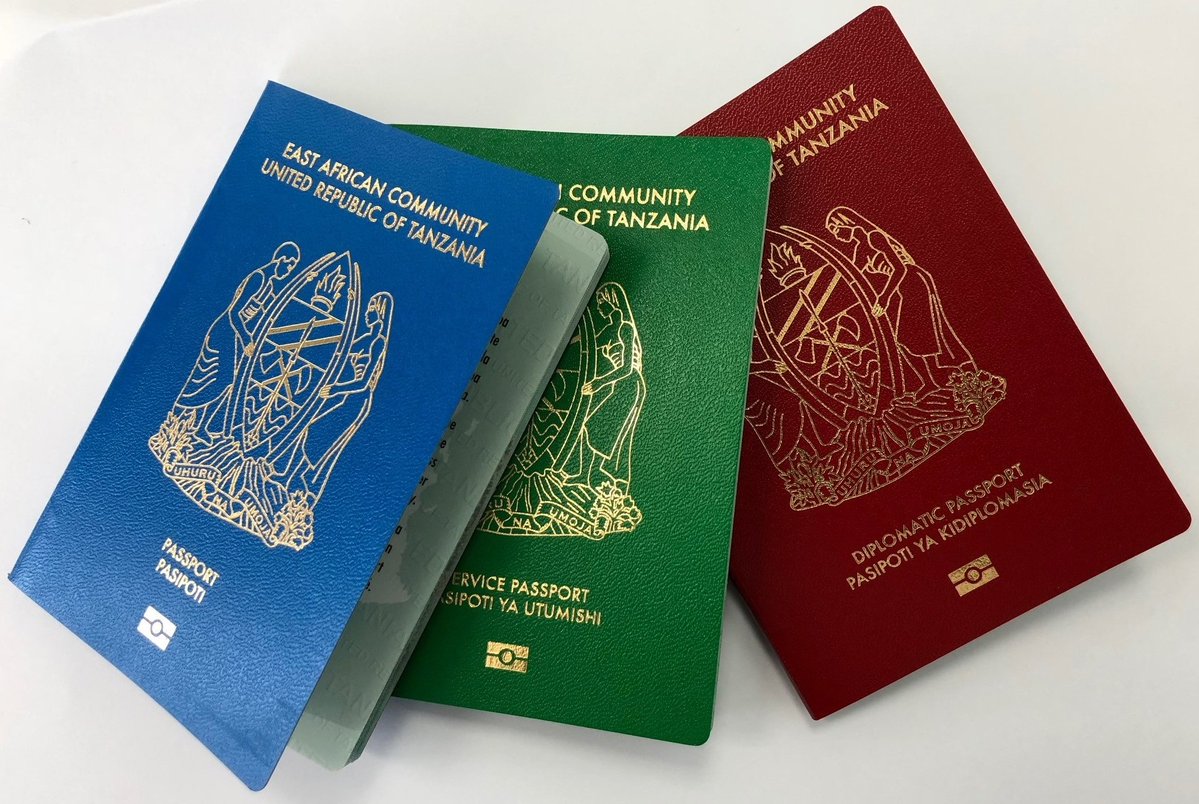The East African e-Passport
In an era of digital transformation, the introduction of the East African e-Passport (EA e-Passport) marks a significant milestone in the quest for seamless travel and enhanced regional integration within the East African Community (EAC). This advanced travel document leverages cutting-edge technology to streamline border crossings, strengthen security measures, and promote greater mobility among member states.
The 17th Ordinary Summit of the EAC Heads of State held on 2nd March, 2016 launched the EA e-Passport in three categories, namely, Diplomatic; Service and Ordinary. The EAC e-Passport is an international passport and therefore replaced the former National Passports of the EAC Partner States.

The EA e-Passport comes in red for the Diplomatic Passport, green for the Service Passport and sky blue for the Ordinary Passport —the colours of the EAC flag — but with text and national emblems, in gold to complete its face. The outer front cover has the words ‘East African Community’ in gold on top and below the name of the issuing Partner State is pasted.
Issuance of the East African e-Passport commenced on various dates across member states, demonstrating the collective commitment to modernizing travel documentation within the region. Kenya led the way by commencing issuance of the EA e-Passport on 1st September, 2017; followed by Tanzania on 31st January, 2018 and Burundi on 31st May, 2018. Uganda joined the initiative on 18th December, 2018 and Rwanda followed suit on 1st July, 2019.
The Republic of South Sudan and the Democratic Republic of Congo are still in the process of implementing the East African e-Passport system, highlighting the ongoing efforts to achieve comprehensive regional integration.
EA e-Passport is expected to boost free movement of people across the region and is in line with the implementation of the Common Market protocol which guarantees the right to move between countries in East Africa.
The EA e-Passport is standardized using minimum standard material such as Polycarbonate bio-data page to have high quality EA e-Passport with large portfolio of integrated security elements. The standard international e-Passport has an electronic chip that holds the same information that is printed on the passport’s data page, the holder’s name, date of birth, and other biographic information. It also contains a biometric identifier and has a digital photograph of the holder and security features to prevent unauthorised reading or “scanning” of data stored.
Features of the East African e-Passport:
- Biometric Identification:
The e-passport incorporates biometric data such as fingerprints and facial recognition technology, enhancing security and reducing the risk of identity fraud. This ensures that travelers can be reliably authenticated at border checkpoints, bolstering confidence in the integrity of the travel document. - Electronic Chip:
At the heart of the e-passport lies an embedded electronic chip that securely stores the passport holder's information, including personal details, biometric data, and travel history. This digitized format enables quick and efficient verification by immigration authorities, reducing processing times and enhancing border security. - Interoperability:
The East African e-Passport adheres to international standards, ensuring compatibility with electronic systems deployed at airports and border crossings worldwide. This interoperability facilitates smoother travel experiences for EAC citizens, whether within the region or beyond its borders, while also facilitating the integration of regional security databases. - Enhanced Security Features:
In addition to biometric authentication and electronic storage capabilities, the e-passport incorporates advanced security features such as holographic images, digital watermarks, and tamper-evident elements. These measures make the passport highly resistant to counterfeiting and unauthorized alterations, safeguarding the integrity of the travel document and the identity of its holder.
Benefits of the East African e-Passport:
- Streamlined Travel Procedures:
The adoption of the EA e-Passport has simplified immigration processes, reducing queues and wait times at border checkpoints. Travelers can enjoy a more seamless and efficient journey, enhancing the overall travel experience and encouraging intra-regional tourism and trade. - Facilitation of regional integration:
By promoting greater mobility among EAC citizens, the EA e-Passport contributes to the deepening of regional integration efforts. It fosters cross-border collaboration, cultural exchange, and people-to-people connections, strengthening the bonds of unity and solidarity within the East African Community. - Enhanced Border Security:
The advanced security features of the e-Passport bolster border security efforts, helping authorities to detect and deter fraudulent activities such as identity theft and document forgery. This contributes to safer and more secure borders, safeguarding the well-being of citizens and the integrity of the region. - Global Recognition:
The East African e-Passport enhances the international standing of EAC Partner States by aligning with global best practices in passport issuance and authentication. This facilitates smoother travel experiences for EAC citizens when visiting other countries and promotes the region as a favorable destination for tourism, investment, and business activities.
The East African e-Passport represents a transformative leap forward in the realm of travel documentation, embodying the principles of innovation, security, and regional cooperation. By leveraging advanced technology to facilitate seamless travel and enhance border security, the e-passport contributes to the realization of the EAC's vision of a more integrated, prosperous, and interconnected East Africa. As Partner States continue to collaborate and invest in the advancement of digital infrastructure, the e-passport serves as a cornerstone of progress, promoting greater mobility, prosperity, and unity across the region and beyond.